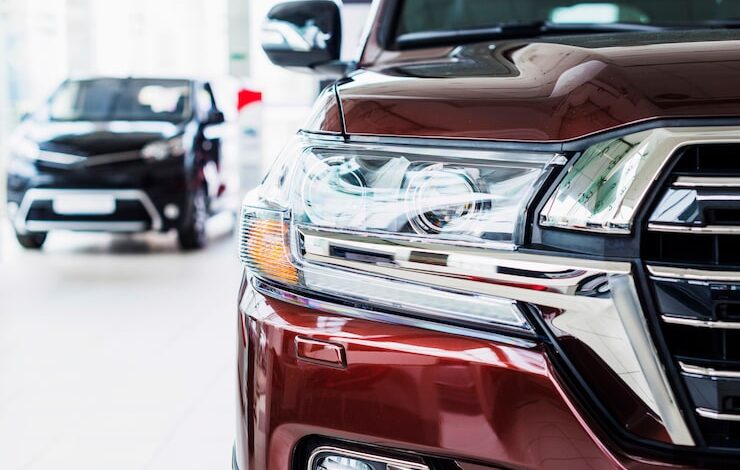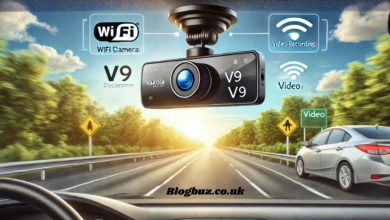Can Chevy Cars Be Easily Adapted for Electric Vehicle Charging?

As electric vehicles (EVs) gain popularity, many drivers are considering how traditional vehicles, including Chevy cars, fit into the evolving automotive landscape. While Chevrolet has introduced models like the Chevy Bolt EV and hybrid options, questions remain about whether conventional Chevy cars can be easily adapted for electric vehicle charging. Understanding the possibilities and limitations is crucial for drivers exploring EV adoption or hybrid conversion. For those interested in exploring the latest electric and hybrid Chevy models, visiting new Chevy cars for sale provides insight into vehicles equipped for modern charging infrastructure. This article examines the factors surrounding the adaptation of Chevy cars for EV charging and what drivers need to know.
Understanding Electric Vehicle Charging
Electric vehicle charging involves replenishing a vehicle’s battery using electricity from a charging station or home outlet. EVs come equipped with specific connectors and battery management systems designed for safe and efficient charging. Charging infrastructure is typically classified into three levels:
- Level 1: Standard 120-volt household outlets, offering slow charging, suitable for overnight or extended periods.
- Level 2: 240-volt outlets, common for home EV chargers, providing faster charging for daily commuting needs.
- Level 3 (DC Fast Charging): Public fast chargers capable of significantly reducing charging time, ideal for long trips.
For a car to be compatible with these charging methods, it must have an electric powertrain and a battery management system designed to handle electricity safely.
Chevy Electric and Hybrid Models
Chevy has made significant strides in EV technology with models such as the Chevy Bolt EV and the Bolt EUV. These vehicles are designed from the ground up to operate with electric power, incorporating batteries, regenerative braking, and onboard charging systems compatible with Level 1 and Level 2 charging stations.
Hybrid models, which combine internal combustion engines with electric motors, offer additional flexibility. While hybrids do not require external charging in all cases, plug-in hybrid variants (PHEVs) can be connected to charging stations to extend electric driving range. These factory-equipped models are engineered for safe and efficient charging, unlike traditional gasoline-only vehicles.
Adapting Traditional Chevy Cars for EV Charging
Adapting conventional Chevy cars—those with gasoline engines only—for EV charging is not a simple process. Converting an internal combustion engine (ICE) vehicle to electric requires extensive modifications, including:
- Removal of the existing engine and fuel system
- Installation of electric motors, inverters, and controllers
- Integration of a high-capacity battery pack
- Rewiring the vehicle’s electrical system to handle high-voltage components
- Addition of charging ports and battery management systems
While technically feasible, these conversions are complex, costly, and require specialized knowledge. The modification process can cost tens of thousands of dollars and may affect vehicle safety, reliability, and resale value. Additionally, conversions must meet regulatory standards for road use, which can vary by state or region.
Benefits of Factory-Equipped EVs over Conversions
Factory-equipped electric vehicles, like the Chevy Bolt EV, are engineered for efficiency, safety, and compatibility with charging networks. Advantages include:
- Safety: High-voltage systems, battery management, and thermal regulation are tested and approved by the manufacturer.
- Warranty Coverage: Manufacturer warranties cover battery systems, charging components, and electric motors, offering peace of mind.
- Efficiency: Factory EVs are optimized for energy use, range, and regenerative braking performance.
- Connectivity: Features like charging station mapping, remote monitoring, and smart charging integration are included.
While ICE conversions offer customization and novelty, factory-equipped EVs provide a turnkey solution for daily driving, long-distance travel, and sustainable transportation.
Home Charging Considerations
For Chevy owners considering EV adoption, installing a home charging system is a practical solution. Level 2 home chargers are the most common option, providing faster charging than standard outlets. Key considerations for home installation include:
- Electrical panel capacity: Ensuring the home electrical system can support the added load.
- Charger placement: Selecting a convenient location, typically a garage or driveway.
- Safety compliance: Using certified chargers and licensed electricians to ensure proper installation.
Home charging makes EV ownership convenient and practical, allowing drivers to start each day with a fully charged vehicle. Factory-equipped Chevy EVs come with compatible onboard charging systems, simplifying the process.
Public Charging Infrastructure
Public charging stations are expanding rapidly across cities, highways, and commercial areas. Chevy EVs are compatible with a wide range of public Level 2 and DC fast chargers. Features like navigation integration, mobile apps, and smart charging schedules make public charging convenient and efficient.
Converting traditional Chevy cars to electric would require retrofitted charging ports compatible with existing public infrastructure, adding complexity and potential compatibility challenges. Factory EVs are designed to interface seamlessly with these networks, ensuring reliable and safe charging.
Battery Range and Performance
Battery capacity and range are critical factors when considering EV adaptation or purchase. Factory EVs like the Chevy Bolt provide a range sufficient for most daily driving needs, with modern battery technology offering reliability and longevity.
Conversions may vary significantly in range and performance depending on the size of the battery installed, the efficiency of the electric motor, and the weight of the vehicle. Achieving comparable range to factory EVs requires careful planning and high-quality components, further increasing the cost and complexity of ICE conversions.
Regulatory and Legal Considerations
Converting traditional vehicles to electric power requires compliance with safety and emissions regulations. Many states have specific rules regarding vehicle modifications, including inspections, certifications, and registration updates. Non-compliance can result in fines or restrictions on road use.
Factory-equipped EVs, in contrast, meet all regulatory requirements and can be purchased, registered, and insured without additional approvals. Drivers seeking an easy and compliant solution will find factory EVs far more straightforward than custom conversions.
Practical Recommendations for Chevy Owners
For most Chevy owners, transitioning to electric power is most practical through factory-equipped EV or PHEV models rather than attempting a conversion. Recommendations include:
- Explore new Chevy cars for sale to find models with built-in electric or hybrid capabilities.
- Evaluate driving patterns and range requirements to choose the right EV or PHEV.
- Consider home charging installation for daily convenience.
- Utilize public charging networks for extended trips.
- Research incentives, tax credits, and rebates that support EV adoption.
By choosing factory-equipped models, drivers gain reliability, safety, and convenience, avoiding the risks and costs associated with extensive conversions.
Conclusion
While converting traditional Chevy cars to electric is technically possible, it involves complex modifications, high costs, and potential safety and regulatory challenges. Factory-equipped electric and hybrid Chevy vehicles, such as the Chevy Bolt EV, offer a more practical, efficient, and safe solution for drivers looking to embrace electric mobility. These vehicles are designed with integrated charging systems, optimized battery performance, and compatibility with both home and public charging infrastructure.
Hybrid models, experience charging capabilities firsthand, and receive expert guidance on selecting a vehicle that suits their lifestyle and driving needs. For drivers seeking convenience, reliability, and a seamless transition to electric driving, factory-equipped Chevy EVs provide a turnkey solution that delivers performance, safety, and efficiency without the complexities of retrofitting a traditional vehicle. As Chevrolet continues to expand its electric lineup, the future of EV adoption becomes more accessible, sustainable, and practical for all drivers.




